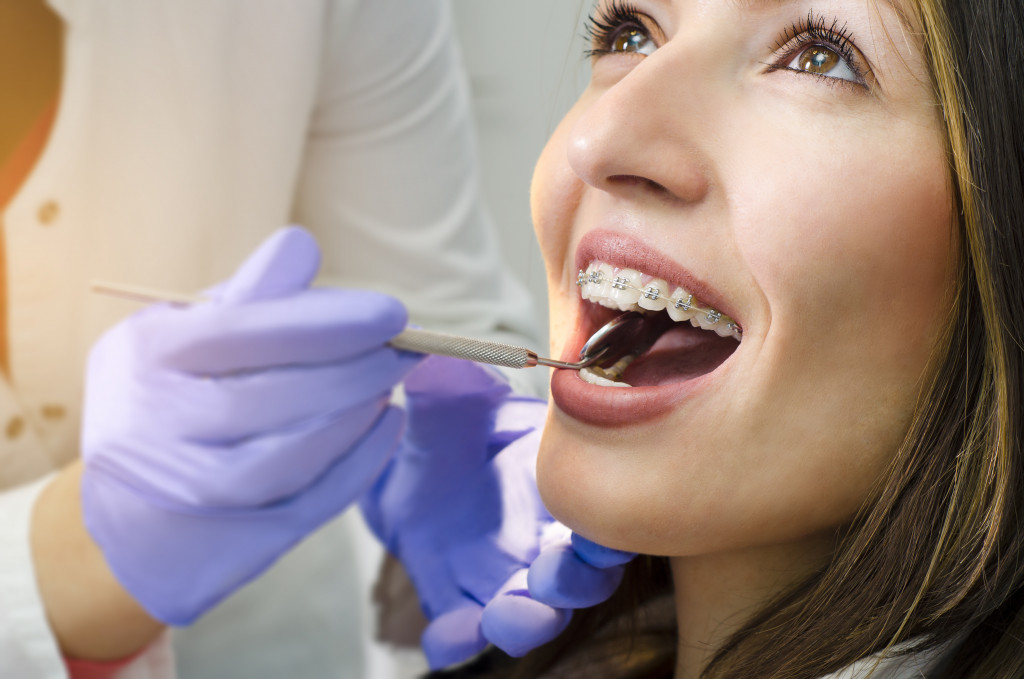The mouth is the window to your overall health. Periodontal disease, for example, has been linked to other chronic conditions such as diabetes and heart disease. Yet most people do not practice good oral hygiene or regularly visit a dentist.
Today, many dental campaigns have helped create oral care literacy among people. This movement has made people understand the importance of oral care and prioritize it. However, more work still needs to be done.
For someone who has never set foot to make changes in their oral routines, the experience could be daunting. An excellent place to start is finding the best solutions for you and your family. Below are some tips to get you started:
Brush twice a day with fluoride toothpaste.
Most people know that they should brush twice a day, but not everyone uses fluoride toothpaste. Fluoride is a mineral that helps to prevent tooth decay and cavities.
It’s essential to use toothpaste that contains fluoride because it can help protect your teeth against plaque and bacteria. As a result, your gums become healthy and less likely to bleed.
So, the next time you shop for toothpaste, be sure to check the ingredient list for fluoride.
Floss every day.
Flossing is another critical part of the oral care routine. Flossing helps remove plaque and bacteria from between your teeth and gums.
If plaque and bacteria are not removed, they can harden and form tartar. Tartar can only be removed by dental treatment, so taking a proactive measure to prevent them can save you a lot of trouble down the line.
The best time to floss is before bed so that you can ensure your mouth is clean overnight.
See a dentist every six months.

It’s essential to visit your dentist every six months for a routine check-up and cleaning. Doing so will assure you that you have good oral health. If necessary, it’s also the best time to get your teeth cleaned and polished.
Dentists can also detect early signs of oral diseases and suggest treatments to prevent them from progressing. So, it’s a win-win situation that you should take advantage of!
Get the treatment you need.
Suppose your dentist found an early sign of an oral problem and recommends treatment. In that case, getting the necessary treatment is very important. Oral diseases can worsen over time and eventually lead to tooth loss if left untreated.
Therefore, it’s essential to follow your dentist’s advice and get the treatment you need as soon as possible. Doing so will help maintain your oral health and keep your smile looking its best.
Here are some treatments your dentist may recommend:
Gum Disease Treatment
Gum disease is a severe infection that can affect the gums and bones that support your teeth. It’s caused by plaque, a sticky film of bacteria that forms on your teeth. If plaque is not removed, it can harden and form tartar. Tartar can be a destructive force, causing tooth loss.
Luckily, gum disease can be treated with a combination of therapies, including antibiotics, scaling and root planing (SRP), and surgery.
Tooth Decay Treatment
Tooth decay is another common oral disease. It’s caused by bacteria that consume the sugars in your mouth and release acids. These acids attack the tooth’s enamel, causing it to break down. If left untreated, tooth decay can cause cavities and even tooth loss.
Dentists can treat tooth decay with various therapies, such as fillings, crowns, and root canal therapy.
Wisdom Teeth Removal
Removal of wisdom teeth might be necessary if they get impacted or cause pain and infection. Impacted wisdom teeth can damage adjacent teeth and be difficult to clean, leading to plaque accumulation and gum disease.
Wisdom teeth removal is a standard procedure that dentists perform. It’s usually an outpatient surgery that requires the patient to be under general anesthesia.
Practice Good Diet
A good diet is essential for maintaining good oral health. Eating a balanced diet that includes plenty of fruits and vegetables helps keep your teeth healthy and strong.
In particular, avoid sugary foods and drinks, as they can cause tooth decay. Also, be sure to brush immediately after eating sweets so that the sugar doesn’t stay on your teeth longer.
Oral care is an integral part of overall health. By taking care of your teeth and gums, you can prevent plaque build-up and gum disease, leading to tooth decay and other serious oral health problems. So, be sure to practice good oral hygiene habits and visit your dentist regularly for a check-up and cleaning.
Once you’ve seen the benefits it has for your overall health, you’ll be glad you did!

